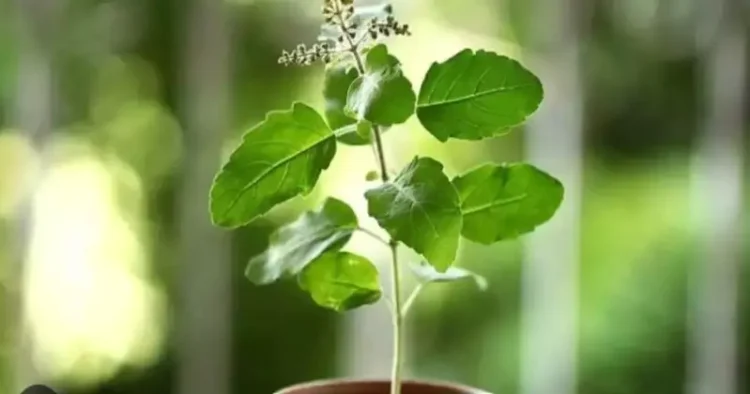Devotees engage in a series of rituals to express their reverence for Tulsi Mata. The day begins by waking up early, followed by a ritualistic bath. The first act is the offering of water to the Tulsi plant, setting the tone for a day filled with devotion.
The lighting of a diya with desi ghee is a central ritual, symbolising the dispelling of darkness and the presence of divine light. Sweets, garlands, and shringar (adornments) are offered, showcasing the devotees’ deep respect and love for the goddess.
A notable practice on this day is the donation of Tulsi plants to temples, reinforcing the sacred connection between the devotees and the divine. At home, people plant Tulsi saplings, a gesture believed to bring auspiciousness and prosperity to the household.
Bhagwan Shaligram, a manifestation of Vishnu, is conventionally placed beside the Tulsi plant, emphasising the interconnectedness of various deities in Hinduism. It is widely believed that Tulsi leaves should not be plucked on this day, further underscoring the sanctity of the occasion.
Circumambulating the Tulsi plant seven times is a key ritual, symbolising devotion and the cyclical nature of life. Offerings such as garlands, flowers, and sweets are presented to Tulsi Mata, while shringar items like dupatta, saree, bangles, vermillion, or silver ornaments are offered based on the devotee’s personal wishes.
Mantras are recited, and Aarti is chanted, creating a spiritual atmosphere as devotees seek the blessings of the goddess. The resonance of these sacred verses is believed to invoke divine favour and protection.
Significance of Tulsi Pujan
Tulsi Pujan holds immense significance in Hinduism, with the Tulsi plant considered the abode of Lakshmi, the goddess of wealth. Known as “Vishnupriya” or the beloved of Bhagwan Vishnu, Tulsi Mata is believed to bless those who worship her with prosperity and happiness. The act of Tulsi pujan is viewed as a conduit to receive the benevolence of Lord Vishnu, further reinforcing the interconnected nature of the Hindu pantheon.
Many devout Hindus incorporate Tulsi puja into their daily routines, recognizing the continuous flow of divine blessings that come from nurturing a relationship with Tulsi Mata.
Tulsi Pujan is not just a set of rituals; it is a profound expression of devotion, gratitude, and the eternal connection between the divine and the earthly. As the diya illuminates the surroundings, so does the worship of Tulsi illuminate the hearts of the faithful, fostering a deep sense of spirituality and divine connection.














Comments